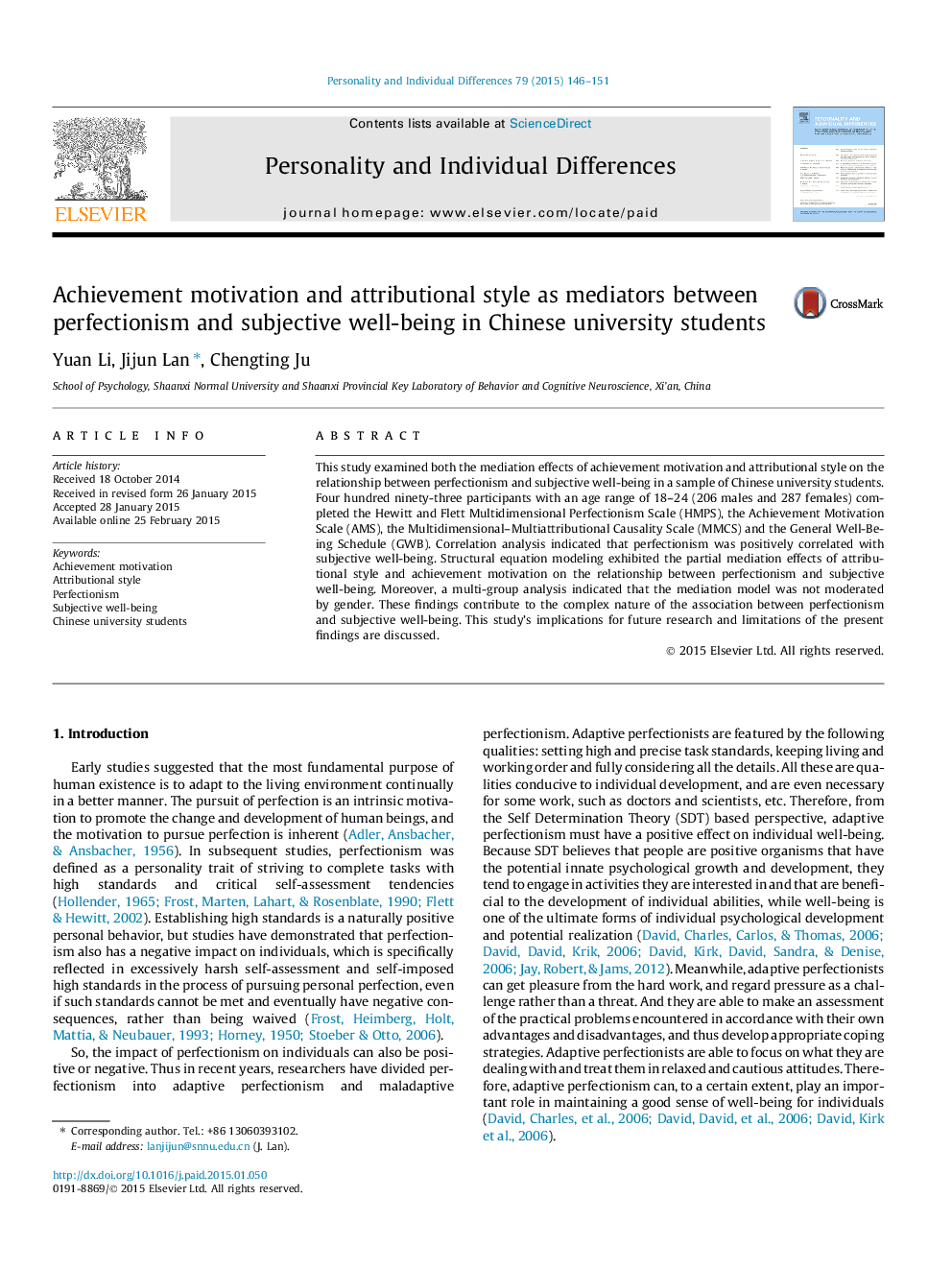| Article ID | Journal | Published Year | Pages | File Type |
|---|---|---|---|---|
| 890265 | Personality and Individual Differences | 2015 | 6 Pages |
•SEM exhibited the partial mediation effects of attributional style and achievement motivation.•Correlation analysis indicated that perfectionism was positively correlated with subjective well-being.•Chinese university students samples.•The multi-group analysis indicated that the mediation model was not moderated by gender.
This study examined both the mediation effects of achievement motivation and attributional style on the relationship between perfectionism and subjective well-being in a sample of Chinese university students. Four hundred ninety-three participants with an age range of 18–24 (206 males and 287 females) completed the Hewitt and Flett Multidimensional Perfectionism Scale (HMPS), the Achievement Motivation Scale (AMS), the Multidimensional–Multiattributional Causality Scale (MMCS) and the General Well-Being Schedule (GWB). Correlation analysis indicated that perfectionism was positively correlated with subjective well-being. Structural equation modeling exhibited the partial mediation effects of attributional style and achievement motivation on the relationship between perfectionism and subjective well-being. Moreover, a multi-group analysis indicated that the mediation model was not moderated by gender. These findings contribute to the complex nature of the association between perfectionism and subjective well-being. This study’s implications for future research and limitations of the present findings are discussed.
